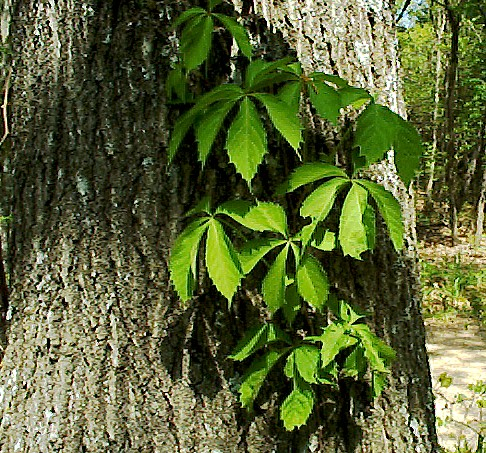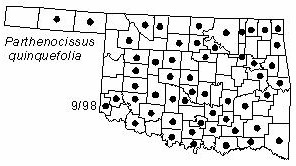
Woody vine, high-climbing by branched tendrils tipped with adhesive disks. Leaves long-petioled, palmately compound. Leaflets usually 5 (3-7), elliptic to obovate, to 15 cm (6 in) long and 8 cm (3 in) wide, acuminate, coarsely serrate above the middle of the blade, glabrous and dull green above, paler and sometimes pubescent below. Inflorescence a panicle of cymes. Flowers small, numerous, yellowish-green, blooming in late Spring or early Summer. Fruits black or dark blue drupes, globose, 5-9 mm (0.2-0.4 in) in diameter, with 1-3 seeds, ripening in Fall.
Distribution: Native to the eastern half of the U. S., southeastern Canada, and northeastern Mexico.
Habitat: Bottomland forests, oak-hickory forests, Cross Timbers.
NWI status: FAC
Comment: Virginia creeper is one of the most common plants in the forests of Oklahoma. It is also widely planted as an ornamental, since it is able to climb brick and stone walls. Parthenocissus is from a Greek phrase meaning "virgin ivy"; quinquefolia refers to the five leaflets.
Distribution in Oklahoma: 
BACK
NEXT
RETURN TO INDEX
Last update: 9/15/99
 Go to Oklahoma Biological Survey Home Page
Go to Oklahoma Biological Survey Home Page
 Disclaimer
Disclaimer